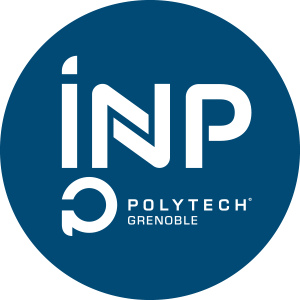Number of hours
- Lectures 6.0
- Projects -
- Tutorials -
- Internship -
- Laboratory works -
- Written tests -
ECTS
ECTS 0.0
Goal(s)
The objective of this course is to illustrate the module "engineering of micro and nano technologies" with industrial applications.
Packaging: general presentation and process steps, with notions on the cost of equipment, the qualification and reliability of components, the means of characterization used.
Intelligent textiles: The advanced textiles sector (technical textiles, intelligent textiles) is undergoing a revolution in the era of digitalization. He is currently developing products and services that fall into the category of the Internet world of things (IoT) and connected portable objects (wearables).
The objective of this course is to introduce students to the world of textiles, that of intelligent textiles, by introducing them to textile technologies (production of fibres, fabrics, clothing...) and the ongoing changes linked to the marriage with the world of electronics.
As far as possible, the link with the students' daily lives (science of materials, but also interactions with textile materials in everyday life) will be made.
Content(s)
Two industrial applications are illustrated:
- packaging by an engineer from MICROOLED (Cyrille Rossat)
What is the purpose of the component packaging, the stakes?
What are the risks to the components?
The steps of packaging
Cutting out
Gluing
Wiring
The different types of boxes
Hermeticity
- Intelligent textiles by an engineer from the TECHTERA competitiveness cluster (Bruno Mougin)
- History of the textile sector. Territorial aspect.
- Definitions (intelligent textiles)
- The textile production chain (based on examples mainly focused on smart textiles)
o Spinning, spinning, spinning
o Moulding (retoridage, assembly, covering)
o Weaving
o Knitting
o Non-woven fabrics
o Finishing (dyeing, printing, treatments, lamination...)
o Assembly (clothing, embroidery, welding...) - Focus on the smart textile market
o Marketing strategy
o Market understanding (value chain, drivers...) - Intelligent textile innovation
o Focus on the notion of use (design thinking)
o Paradigm shifts (technologies, business)
o Scientific and technological barriers (conductive fibres, connectors, energy) - Some examples of development in Europe in laboratories
- Some examples of startups identified in the sector
QUIT
The course exists in the following branches:
- Curriculum - MAT - Semester 9
Course ID : KAMA9M18
Course language(s): 
You can find this course among all other courses.



